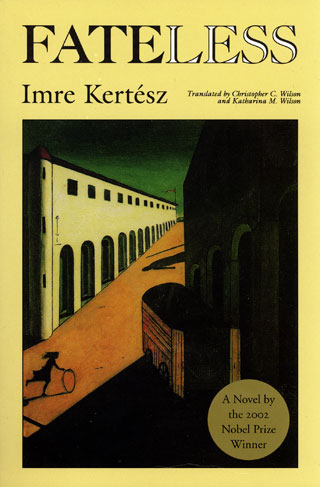Budapest, March 1944. The Nazis invade and occupy Hungary and so begins the systematic deportation of Jews under the supervision of Adolf Eichmann and with the cooperation of the Hungarian authorities. In only fifty-six days between May and July of that year, 437,402 Hungarian Jews were deported, primarily to Auschwitz, and most did not survive. Kertész’s testimony has much in common with Primo Levi’s earlier work If this is a Man, but what sets it apart is the narration by fourteen-year-old Gyuri, based on the author’s own experience of being deported at a similar age, first to Auschwitz, then on to Buchenwald. Gyuri relates what happens to him with innocence, often dispassionately; his coping mechanism is to convince himself that everything he is witnessing makes sense or can be rationalised in some way.
“If there is such a thing as fate, then freedom is not possible…if there is such a thing as freedom, then there is no fate…we ourselves are fate.”
This is a powerful novel that deserves to be read and re-read.
If you would like to buy this book please send me a message.

